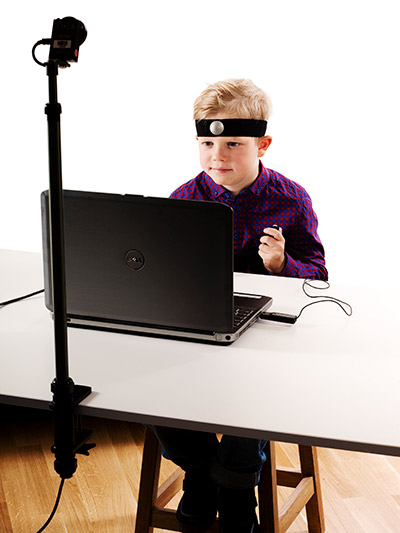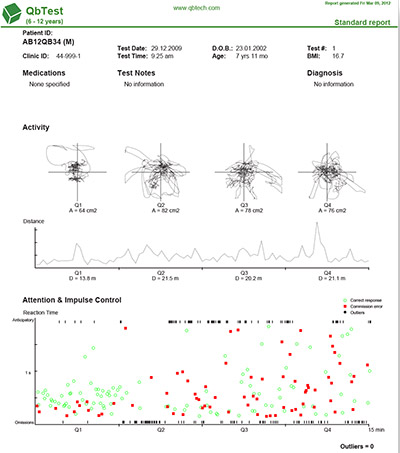Making the decision to seek evaluation and possible treatment for your child’s ADHD-related issues can be a very difficult decision. No parent wants their child to be labeled as “different”, but leaving ADHD undiagnosed and untreated can have very harmful effects on your child’s life in terms of behavior, mental health, and even physical health.
There is lots of evidence that appropriate evaluation, diagnosis, and treatment with carefully chosen and optimized medication brings many benefits to a child’s life. Some of the many benefits documented by research with adequate treatment of ADHD include:
- Improved academic performance and higher academic test scores
- Better self-esteem
- Improved cooperation
- Less anxiety in late adolescence and early adulthood
- Less depression in late adolescence and early adulthood
- Less substance abuse/addiction in late adolescence and early adulthood
- Improved relationships and functioning in the home
We want to help rewrite the narrative and change the stereotypes often assigned to patients with ADHD. If your child is experiencing ADHD-like symptoms, be encouraged that they can live a happy, healthy life.

What Parents Have to Say
What to Expect
When You Bring Your Child to Greenville ADHD Specialists
First, we evaluate your child’s history through pre-appointment paperwork.
Before your first appointment, we try to gather as much information as possible about your child. Having this information ahead of time helps us focus our questions and spend more time speaking with you during your initial appointment about the specific issues your child or adolescent is experiencing in everyday life.
We will provide you with paperwork to fill out regarding your child’s:
- Past medical and surgical history
- Birth history
- Developmental history
- Mental health history
- Sleep problems
- Social history
- School history
- Family medical history
In addition, part of the initial paperwork is a social skills checklist and a patient question list. We ask that your child or adolescent answers directly, or that you record his or her answers verbatim.
We also ask you to provide any previous reports from psycho-educational testing, occupational therapy, physical therapy, previous medical records, and school IEP or 504 records (if applicable) and report card records (if available). If there are disciplinary records, please provide these as well.
Finally, with your permission, we will send the NICHQ Vanderbilt ADHD Diagnostic Teacher Rating Scale to your child or adolescent’s teacher(s).
Second, you and your child will have two initial appointments.
New patient evaluations are split into 2 separate appointments- testing and meeting the Provider.

On the day of TESTING: typically takes 45-60 minutes
- No caffeine or nicotine at least 2 hours prior to your appointment for accurate testing results. If you are currently prescribed medication for ADHD, please do not take your medication the day of your testing.
- Bring your insurance card(s), pharmacy card, and photo ID with you. We will also take a patient photo for your chart.
- Bring a list of all current medications and supplements with dosage, or the original bottles.
- Payment of $200 is required on the day of testing.

On the day of your new patient appointment:
- Payment is due at the time of service. Cost is $500 (payment plans available, minimum $200 due day of) or $400 if paid-in-full.
- If you live with a spouse or significant other, it can be beneficial to bring them to the appointment with you.
- We suggest using a voice recording device or app on your phone to record your conversation with the provider. It can be very helpful to go back and listen, as you will be receiving a lot of information.
- The time needed for your first appointment is about 1-1.5 hours, so plan accordingly.
Third, you and your child return for a follow up appointment.
We like to see our patients back within 2 to 4 weeks after beginning a treatment plan. If medication was started, we also like to repeat the QbTest. Having these results on medication help us to optimize dosage or find the dosage that works the absolute best for the patient.
Often, parents are impressed by the improvements on the QbTest results in such a short period of time. If improvements are still lacking in some areas on the QbTest or in the patient’s day-to-day life, then additional dosage adjustments may be needed.
Every 3 months, you and your child need to be seen for maintenance visits. We offer telemedicine appointments to South Carolina patients.
It is important that we see patients every 3 months for multiple reasons. First, it allows us to monitor your child’s progress and make adjustments to their treatment plan as needed.
Second, if your child or adolescent is taking a stimulant medication, our clinicians can only write for 3 months of prescriptions at a time due to South Carolina law. A stimulant prescription is NOT refillable, but we are allowed to electronically send 3 months of prescriptions at a time and each prescription expires after 90 days. In addition, it is important to follow weight, height, blood pressure, and heart rate in patients who take any medications.
The questionnaires and rating scales used in the initial visit will be repeated to monitor growth and progress.
- 1. Pre-appointment
-
First, we evaluate your child’s history through pre-appointment paperwork.
Before your first appointment, we try to gather as much information as possible about your child. Having this information ahead of time helps us focus our questions and spend more time speaking with you during your initial appointment about the specific issues your child or adolescent is experiencing in everyday life.
We will provide you with paperwork to fill out regarding your child’s:
- Past medical and surgical history
- Birth history
- Developmental history
- Mental health history
- Sleep problems
- Social history
- School history
- Family medical history
In addition, part of the initial paperwork is a social skills checklist and a patient question list. We ask that your child or adolescent answers directly, or that you record his or her answers verbatim.
We also ask you to provide any previous reports from psycho-educational testing, occupational therapy, physical therapy, previous medical records, and school IEP or 504 records (if applicable) and report card records (if available). If there are disciplinary records, please provide these as well.
Finally, with your permission, we will send the NICHQ Vanderbilt ADHD Diagnostic Teacher Rating Scale to your child or adolescent’s teacher(s).
- 2. Initial Appointment
-
Second, you and your child will have two initial appointments.
New patient evaluations are split into 2 separate appointments- testing and meeting the Provider.

On the day of TESTING: typically takes 45-60 minutes
- No caffeine or nicotine at least 2 hours prior to your appointment for accurate testing results. If you are currently prescribed medication for ADHD, please do not take your medication the day of your testing.
- Bring your insurance card(s), pharmacy card, and photo ID with you. We will also take a patient photo for your chart.
- Bring a list of all current medications and supplements with dosage, or the original bottles.
- Payment of $200 is required on the day of testing.
LEARN MORE ABOUT THE QBTEST
On the day of your new patient appointment:
- Payment is due at the time of service. Cost is $500 (payment plans available, minimum $200 due day of) or $400 if paid-in-full.
- If you live with a spouse or significant other, it can be beneficial to bring them to the appointment with you.
- We suggest using a voice recording device or app on your phone to record your conversation with the provider. It can be very helpful to go back and listen, as you will be receiving a lot of information.
- The time needed for your first appointment is about 1-1.5 hours, so plan accordingly.
DIAGNOSIS & TREATMENT FAQ - 3. Follow-Up Appointment
-
Third, you and your child return for a follow up appointment.
We like to see our patients back within 2 to 4 weeks after beginning a treatment plan. If medication was started, we also like to repeat the QbTest. Having these results on medication help us to optimize dosage or find the dosage that works the absolute best for the patient.
Often, parents are impressed by the improvements on the QbTest results in such a short period of time. If improvements are still lacking in some areas on the QbTest or in the patient’s day-to-day life, then additional dosage adjustments may be needed.
- 4. Maintenance
-
Every 3 months, you and your child need to be seen for maintenance visits. We offer telemedicine appointments to South Carolina patients.
It is important that we see patients every 3 months for multiple reasons. First, it allows us to monitor your child’s progress and make adjustments to their treatment plan as needed.
Second, if your child or adolescent is taking a stimulant medication, our clinicians can only write for 3 months of prescriptions at a time due to South Carolina law. A stimulant prescription is NOT refillable, but we are allowed to electronically send 3 months of prescriptions at a time and each prescription expires after 90 days. In addition, it is important to follow weight, height, blood pressure, and heart rate in patients who take any medications.
The questionnaires and rating scales used in the initial visit will be repeated to monitor growth and progress.
PRESCRIPTION FAQ
Take the Next Step.
If you think your child or adolescent might be dealing with ADHD, please reach out to us to schedule an appointment. We would love to help you.
